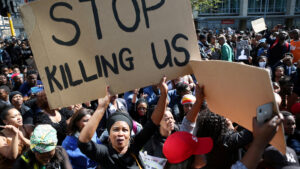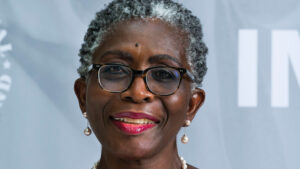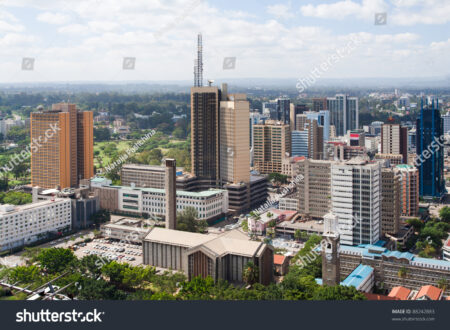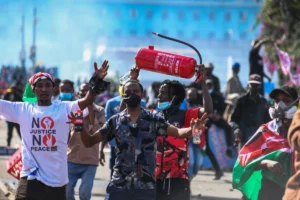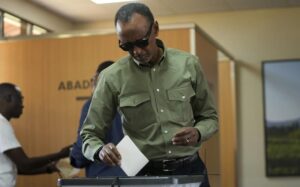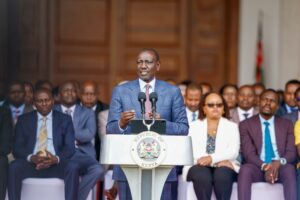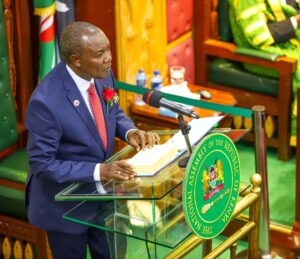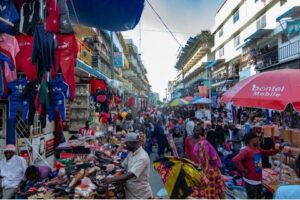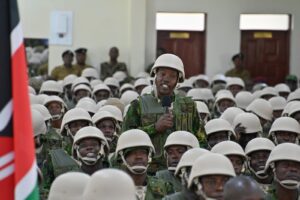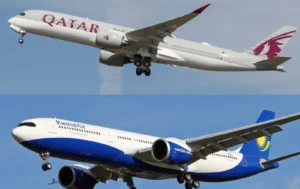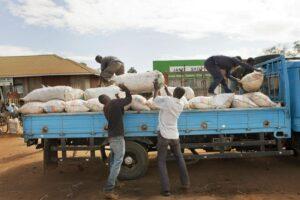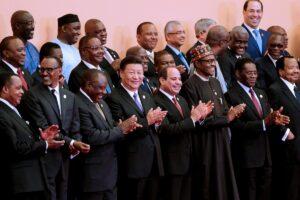- Africa’s new dawn: the rising role of digital and AI in agriculture
- Can Dangote Refinery Transform Africa Energy Ambition
- Gallup Survey: 80 per cent of Kenyan Workers Are Disengaged and Seek New Opportunities
- Madagascar Man Freed from 5KG Tumor After 15-Year Struggle
- How women in Africa are perceived and treated
- Sugar consumption in Kenya to Increase to 1.23 Million Tonnes
- Can Somalia and Turkey Oil deal Bring Change in Somaliland
- Remittances to Kenya dropped to $371.6 million in June, marking a six month low
Countries
- A majority of Kenyan workers are disengaged according to the 2024 edition of Gallup employees survey.
- The survey further shows that men are slightly more engaged than their female counterparts.
- More women (50 per cent) were stressed than men (47 per cent). The junior employees recorded higher stress levels than managers.
A new study shows that for every five employed Kenyans, four lack the drive to go above and beyond in their roles at work.
A recent global survey by Gallup says 80 per cent of Kenyan workers are “disengaged” meaning they only do the bare minimum and are only in their current job because they haven’t found a job opening elsewhere.
‘Disengaged from work’ refers to a lack of emotional or psychological connection to one’s job or workplace.
Disengaged employees typically show low levels of motivation, commitment, and enthusiasm for their work.
At 80 percent, the rate of disengagement …
- Only about 50% of women in Kenya and 52% in Uganda feel that they are treated with respect and dignity.
- In Zimbabwe, 60% of women feel that they are treated with respect and dignity. This is a sharp drop from an estimated 71% of women who reported being treated with respect in 2013.
- The percentage of people in South Africa who feel this way was even worse at 27% among men and 28% among women.
In Africa’s most advanced economy South Africa, the percentage of people in South Africa who felt this way was even worse at 27 percent among men and 28 percent among women.
The push for equality across Africa appears far from yielding good results with a new report showing that the perceptions that women are treated with respect and dignity have dropped sharply in recent years in Kenya, Uganda South Africa, and Zimbabwe.
According to Gallup …
- Antoinette Monsio Sayeh is set to retire as Deputy Managing Director of the International Monetary Fund (IMF) on September 12, 2024.
- The IMF says her experience, deep integrity, and wise judgment have been invaluable to the global lender.
- Antoinette Sayeh oversaw several vital initiatives of operations, policies, and corporate priorities, drawing on her deep knowledge of the institution.
Liberian management icon and trailblazer Antoinette Monsio Sayeh is set to retire from the International Monetary Fund (IMF) on September 12, 2024.
In an update by the IMF Managing Director Kristalina Georgieva, Antoinette Sayeh will conclude her tour of duty in the Washington-based institution this September where she has been serving as the Deputy Managing Director since 2020.
At the helm, she served with deputy managing directors Kenji Okamura (Japan), Bo Li (China) and Gita Gopinath (US/India) who is the first managing director.
“Antoinette has been a pillar of the Fund’s leadership …
- ATIDI supports the 35MW greenfield geothermal project in Kenya with its Regional Liquidity Support Facility (RLSF).
- The project, the first to be considered for RLSF cover in Kenya, is set to benefit from ATIDI’s liquidity instrument which will cover the risk of payment default by public entities: Geothermal Development Corporation and Kenya Power.
- Kenya’s power sector benefits from an active private sector and boasts abundant renewable energy resources with hydro, wind, and geothermal projects dominating its energy mix.
Regional Liquidity Support Facility (RLSF)
The African Trade and Investment Development Insurance (ATIDI) and Globeleq Africa Limited, have jointly announced the former’s support for the 35MW Globeleq Menengai Geothermal Project with liquidity cover via the Regional Liquidity Support Facility (RLSF).
RLSF, a joint initiative of ATIDI, the KfW Development Bank and the Norwegian Agency for Development Cooperation (Norad), is a credit enhancement instrument available to renewable energy Independent Power Producers …
- Ruto has bowed to public pressure and withdrawn the Finance Bill 2024, a piece of legislation that contained contentious tax increases.
- His move follows deadly protests that engulfed Kenya on Tuesday leaving 22 dead and part of parliament set ablaze.
- President Ruto: “It is clear that Kenyans want nothing to do with the bill. I concede.”
Kenya’s President William Ruto has bowed to public pressure and withdrawn the Finance Bill 2024, a piece of legislation that contained contentious tax increases, following deadly protests that engulfed Kenya on Tuesday.
The demonstrations, which saw parts of the parliament set ablaze, have been described as the most significant since Ruto took office in 2022.
In a national address late Wednesday, President Ruto acknowledged the widespread opposition to the bill, stating, “It is clear that Kenyans want nothing to do with the bill. I concede.” He assured the public that he would not …
- Businesses in Kenya seeking government tenders will soon have to contend with new regulations.
- Among the proposed changes is the amending of the compulsory requirement that compels the government to award tenders to the lowest bidder.
- According to the Institute of Economic Affairs the compliance rate of public procurement regulations is low.
Kenya’s Procurement Regulator Strategic Plan for businesses that seek government tenders will soon have to contend with new regulations should the Public Procurement Regulatory Authority forge ahead with the proposed changes on the issuance of state tenders.
Among the proposed changes is the amending the compulsory requirement that compels the government to award tenders to the lowest bidder. PPRA argues out that this has compromised the quality of some of the projects undertaken under this model of procurement.
The Authority’s Director General Patrick Wanjuki, said that in the next three years, PPRA is looking to strengthen its capacity …
- Kariakoo Traders from Tanzania are striking against higher taxes heaped on them by the authorities.
- The government has however assured the traders on the safety of their property.
- Unlike tear gas and fights in neighbouring Kenya that have caught global attention, Tanzania’s strike is rather less chaotic.
“No more taxes and the strike is the only apparatus we have to get what we want and the way forward” says Frank, a merchant and trader in the Tanzania’s open market pulse, Karikoo. Frank and like most of his peers, often young people, who invested significantly in stores that charge over $220 rent per month – is forced to see his investment wither by the day, as tax revolt intensifies.
Thanks to social media, the traders circulated a message on June 22, 2024 that directs all traders in Kariakoo to close their businesses, including their shops, offices and any other activities …
- Kenyan Professional Workers expect employers to take the lead in supporting their relocation
- Nearly 70 per cent of Kenyan respondents cite financial and economic reasons to move abroad
- Australia, the US, Canada, the UK, and Germany round out the top five most desired destination countries globally
The number of Kenyan professional workers looking for opportunities to work in other countries is higher than the global average, a new global survey has shown.
Despite global challenges such as geopolitical tensions, widespread economic concerns, and emerging virtual mobility trends from the past several years, moving abroad for work remains a dream for many workers around the world, with 23 per cent of global and 60 per cent of local professionals actively seeking jobs in other countries.
This essentially means that, every 6 out of 10 professionals working in Kenya are actively seeking jobs abroad a higher number than the global average of …
- The deployment is part of a larger mission led by Kenya to restore order in Haiti, where gangs have taken control of most of the capital, Port-au-Prince.
- Gangs in Haiti have been responsible for widespread killings, kidnappings, and sexual violence.
- Police officers from Jamaica, the Bahamas, Barbados, Chad, and Bangladesh set to form part of the 2,500-international force.
Kenyan police depart for Haiti
The first group of Kenyan police officers has departed for Haiti to address the rampant gang violence plaguing the Caribbean nation. The deployment is part of a larger mission led by Kenya to restore order in Haiti, where gangs have taken control of most of the capital, Port-au-Prince, and have been responsible for widespread killings, kidnappings, and sexual violence.
Kenya’s commitment to leading this international force dates back to July 2023, when it volunteered to spearhead efforts to tackle the violence in Haiti. The mission, which includes …






